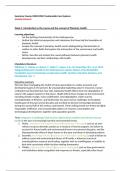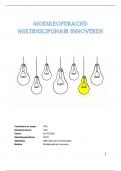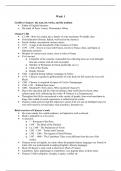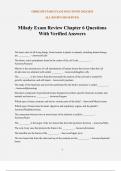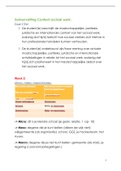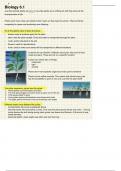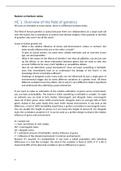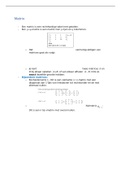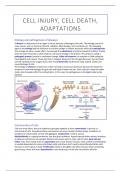honour". Evaluate the presentation of passion in the play in light of this
statement. Evaluate your ideas in light of contexts.
Although Shakespeare presents a fair more attractive portrait of
Cleopatra, the eponymous character symbolising the temptation of
passion, than his predecessors, he never suggests that passion ‘triumphs’
over duty and honour. Moreover, although the Egyptians view Roman
society as ‘constraining’, the ending of the play suggests that these
values are the foundations of society and are far more enduring than flash
in the pan ‘passion’.
Shakespeare’s presentation of Cleopatra is undoubtably more
complimentary than that of previous writers. Traditionally, Anthony and
Cleopatra are portrayed as ‘Ate’, those whom the gods make passionate
before destroying. Dante, for instance, places Cleopatra in his 2nd circle of
hell, the punishment for the over lustful, and Anthony, in Boccaccio, is an
example of enslavement to lust. Moreover, Shakespeare’s ‘source text’,
North’s translation of Plutarch, was equally condemning of passion,
according to Bevington, Plutarch viewed Anthony as “a victim of a tragic
infatuation”. Therefore, Shakespeare’s far more complex approach when
presenting passion is comparatively radical in literary history, perhaps
even anti-Christian for his time as he seems to celebrate Cleopatra’s
liberal sexual values: “holy priests bless her when she is riggish”.
Through Enobarbus’ ‘The Barge at Cyndus’ monologue, possibly the most
memorable scene in the play, the audience are exposed to an atypical
portrayal of Cleopatra, here she is divine, able to “make a gap in nature”,
alluring, likened to “Venus”, the Roman goddess of love, and royal,
“enthroned in the marketplace”. Shakespeare’s Cleopatra is paradoxical
and sensual, her “infinite variety” in describable and Enobarbus uses a
series of oxymorons to convey this concept: “she makes hungry where
she most satisfies”, “vilest things become themselves in her”. This
monologue demonstrates that even the most stoic, exemplary Romans
are unable to resist her allure, even Agrippa comments “O rare for
Anthony”, adding to this atmosphere of awe. However, ‘passion’ does not
‘triumph’ over ‘honour and duty’ in this play since it is metaphorically
defeated at the Battle of Actium; excessive ‘passion’, Cleopatra’s parasitic
influence (“she takes from his heart, takes from his brain”), and Anthony’s
inability to “kill all our women” are instead presented as his hamartia.
Romans can indulge, Enobarbus certainly does (“mine, and most our
fortunes tonight, shall be drunk to bed”), in the revelry and passion of
Egypt, in fact the biggest ‘party’ scene is held on a Roman barge, but they
are always ‘constrained’ by self-discipline. Furthermore, Shakespeare
seems to present a causal link between excessive passion and death –
most evidently in the lovers’ joint suicide but also arguably through
Enobarbus who dies of a broken heart, his last words being “O Anthony! O
Anthony!”. Therefore ‘passion’ cannot ‘triumph’ over ‘duty and honour’
when it is so explicitly linked to death.

